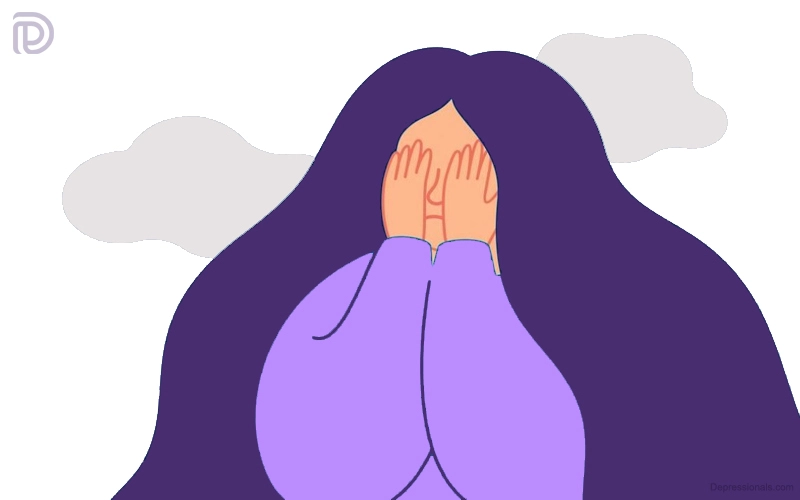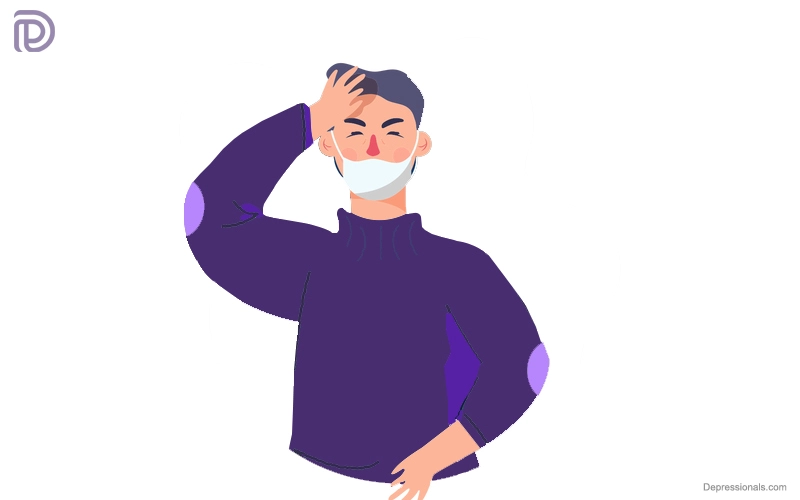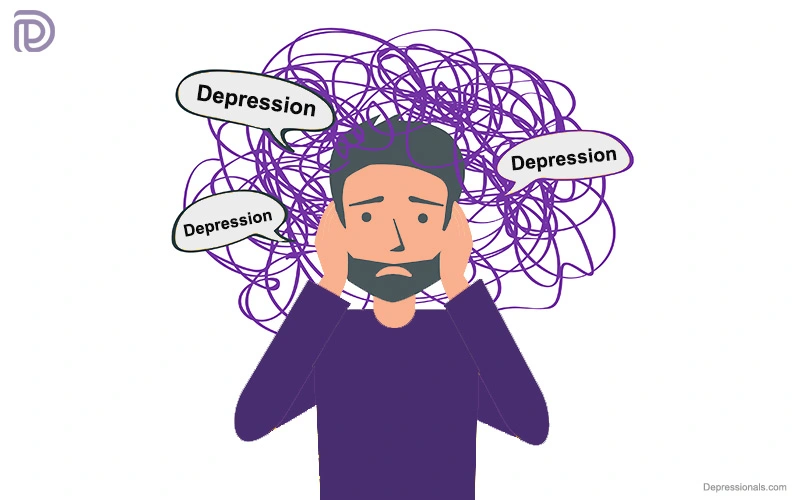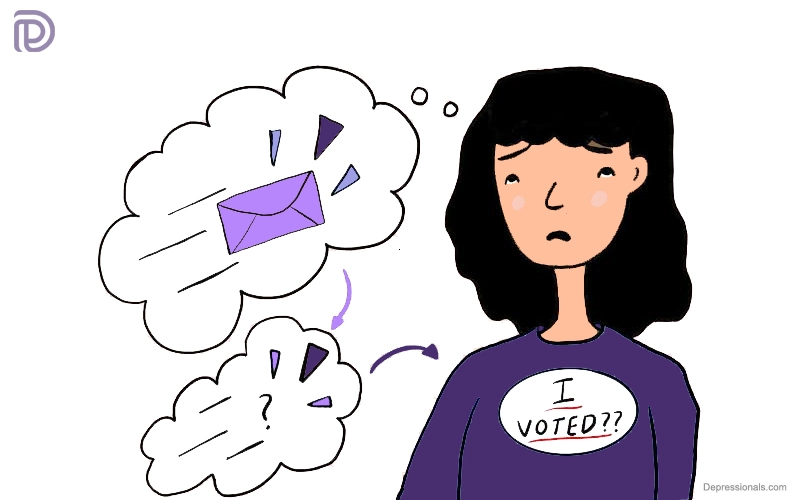What is situational depression?
The stress-related type of depression known as situational depression lasts for only a short period. The condition can occur after you have experienced a traumatic event or series of events. A type of adjustment disorder, situational depression occurs after experiencing a traumatic event. You may find it difficult to return to your normal life after a traumatic event. Reactive depression is another name for this.
It can be caused by:
- Work or school problems
- Illness
- Loss of a loved one
- Moving
- Relationship problems
Read: What is a Toxic Relationship?
Situational vs. clinical depression
The duration of situational depression is usually shorter than that of clinical depression. It usually takes some time for situational depression to resolve once the stressor that triggered the symptoms has been dealt with.
Stressors in situational depression trigger emotional and behavioral responses within three months. The severity of the stressor may not correspond to your distress with it.
The symptoms of situational depression can interfere with daily functioning in some people, while others may adjust to stressful events quickly. There is always a stressor behind situational depression.
It usually takes 6 months for situational depression symptoms to resolve. There may be times, however, when situational depression persists for more than four weeks.
Psychotherapeutic interventions are usually required for the treatment of clinical depression over the long term. It is often treated over a short period of time.
Furthermore, some people who suffer from clinical depression may experience psychosis-like symptoms, such as hallucinations and delusions. It is rare for situational depression to exhibit these symptoms.
The diagnosis of situational or clinical depression can be made by a qualified mental health professional. Talk to a licensed counselor, social worker, or therapist about your situation.
Symptoms
The symptoms of situational depression vary depending on the individual. This type of depression can amplify the impact of stressful events in one’s life. The stress may severely disrupt your daily routine.
Situational depression symptoms include:
- Sadness
- Hopelessness
- Inability to enjoy normal activities
- Regular crying
- Anxiety or stress all the time
- Sleeping difficulties
- Disinterest in food
- Focus issues
- Difficulty performing daily tasks
- Feeling overwhelmed
- Reluctant to interact with others
- Neglecting important matters such as paying your bills and attending work
- Suicidal thoughts or attempts
Read: Loneliness and Depression
Causes
A stressful event, whether positive or negative, can trigger it. Some stressful events are:
- Problems in relationships, such as fighting or divorce
- Changing circumstances such as retiring, going away to school, or bringing a child into the world
- Financial difficulties, such as a job loss or money problems
- An unexpected death
- Academic or work-related social problems
- Life-threatening situations, such as physical assault or combat
- Medical illness
- Residing in a dangerous area
Stress can be influenced by past experiences. Reactive depression is more likely if you have:
- Grown-up under a lot of stress
- Have mental health issues
- Dealt with many adversities simultaneously
You might also be more susceptible to depression due to biological factors. These factors include:
- Abnormal brain chemistry and structure
- Abnormal hormone levels
- Genetic changes
A person in your family who has also experienced depression is also more likely to develop it.
Read: COVID-19 and Depression
Diagnosing situational depression
A person with situational depression will experience symptoms after experiencing a stressful event. You may be suffering from reactive depression if you are experiencing:
- Within three months after a traumatic event, you experience emotional or behavioral symptoms
- A stressful life event causes you to feel more stressed than usual
- It can affect your relationships, work or academic pursuits severely
- After a loved one has died, you are experiencing symptoms of depression that are not the result of another mental health disorder
Read: Childhood Depression
Treatment
If you find that you cannot handle your daily responsibilities and activities because of your symptoms, then you need to see a doctor. You can benefit from treatment by being able to handle stress better.
Situational depression medication may include:
- Selective serotonin uptake inhibitors (SSRIs), such as sertraline (Zoloft) and citalopram (Celexa)
- Bupropion and other dopamine reuptake blockers
The most preferred treatment for situational depression is supportive psychotherapy due to its ability to enhance coping mechanisms and resilience. It helps to prepare you for future challenges and prevents future episodes of depression caused by reactive factors. Cognitive-behavioral therapy (CBT) is one of the therapies that may be helpful.
You can also adapt your lifestyle to help you cope with depression, once your treatment has helped you address your depression. Here are some suggestions for dealing with situational depression:
- Start exercising
- Get into a good sleeping routine
- Rest and relax more
- Improve your diet
- Develop a strong social network
Related: How to Help Someone with Depression
Coping
If you are experiencing situational depression, you may benefit from the following lifestyle changes:
- a balanced, healthy diet
- Maintaining a regular routine
- regularly
- involved in a support group, whether it’s online or in your community
- Engaging in new hobbies and recreational activities
- Spending time with friends and family
A situational depression might resolve on its own after some time. The probability of recovering on one’s own may increase if the individual has good coping skills and resilience, as well as adequate self-care and social support.
The best way to cope with problems is to put your energy into finding a solution. It is important to stay focused on the future no matter what type of stress you are going through. Make sure you analyze the situation, determine what solutions might help, and work towards achieving those solutions.
Furthermore, by focusing on the elements of the situation that you can control, rather than focusing on the things you can’t control, you’ll remain focused and positive.
You may need to seek help from a therapist or a doctor if you’re suffering from depression or anxiety due to a traumatic event.
Suicide prevention
If you think someone may hurt themselves or another person immediately, call 911 immediately.
- You can also dial your local 911 number
- Wait for help to arrive until it arrives
- Things that may cause harm should be removed, such as guns, knives, medications etc
- Listen without judging, arguing, threatening or yelling
Seek help from a crisis or suicide prevention hotline if you think someone is considering suicide. The National Suicide Prevention Lifeline number is 800-273-8255.
Contact: Mental Help Resources






Very interesting info !Perfect just what I was looking for!
Some truly wonderful blog posts on this website, thank you for contribution. “An alcoholic is someone you don’t like who drinks as much as you do.” by Dylan Thomas.